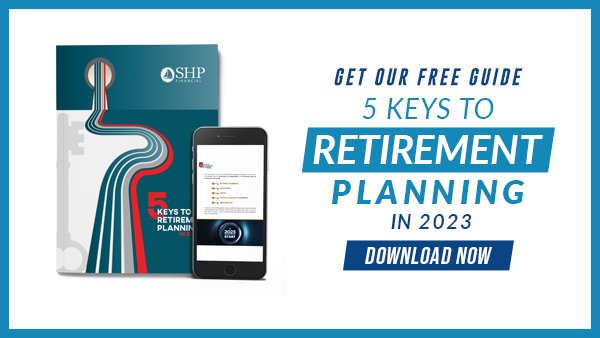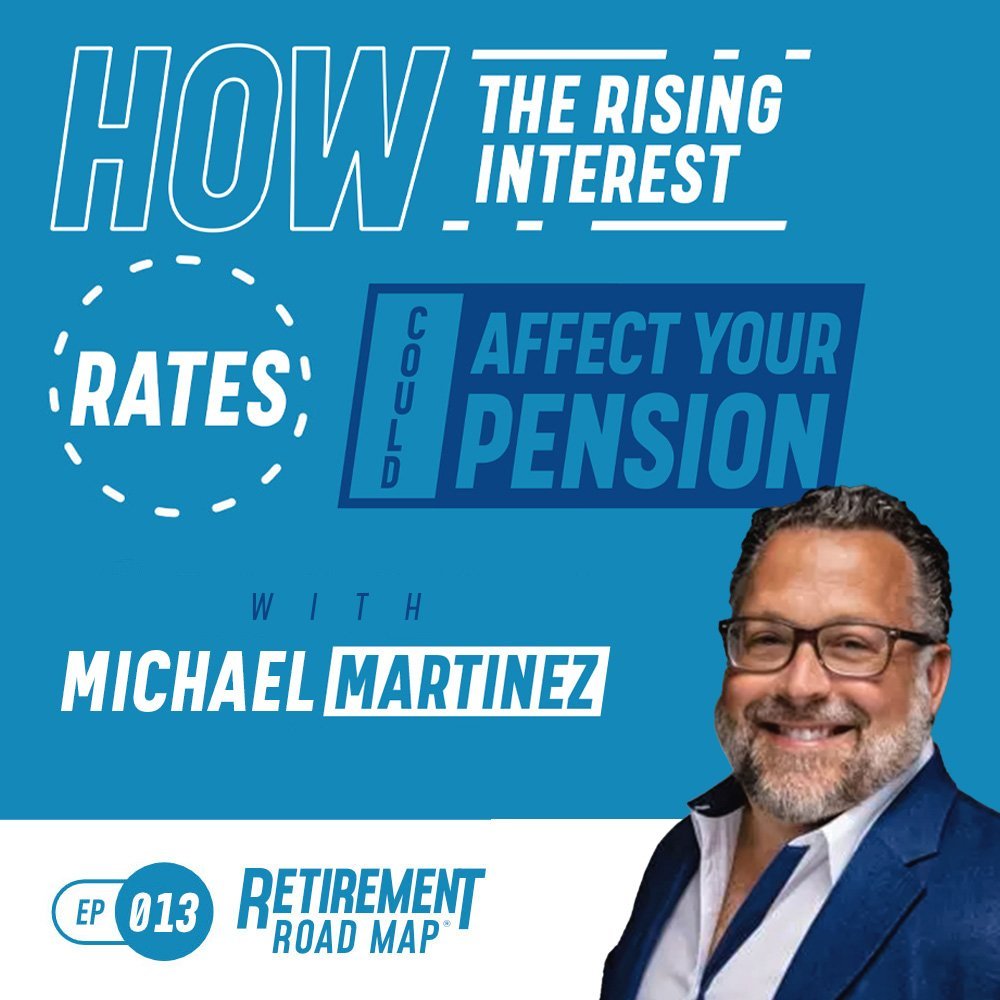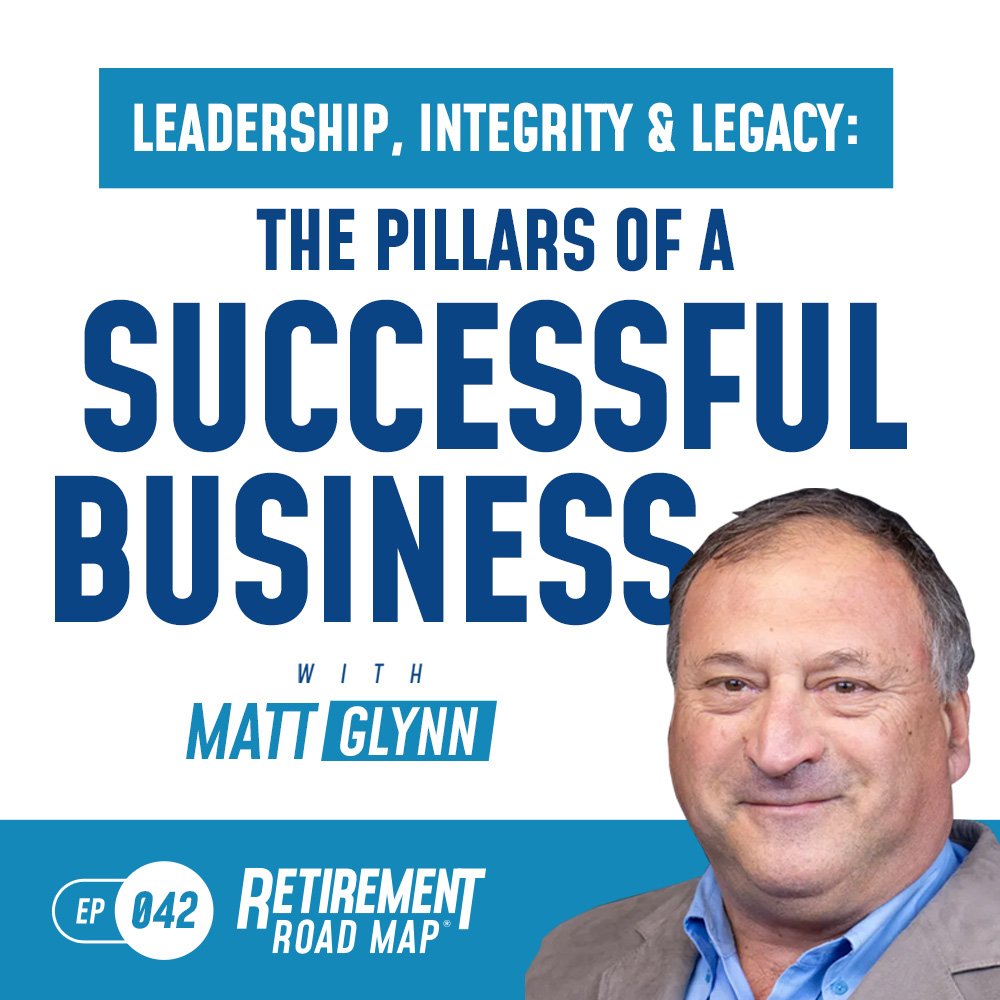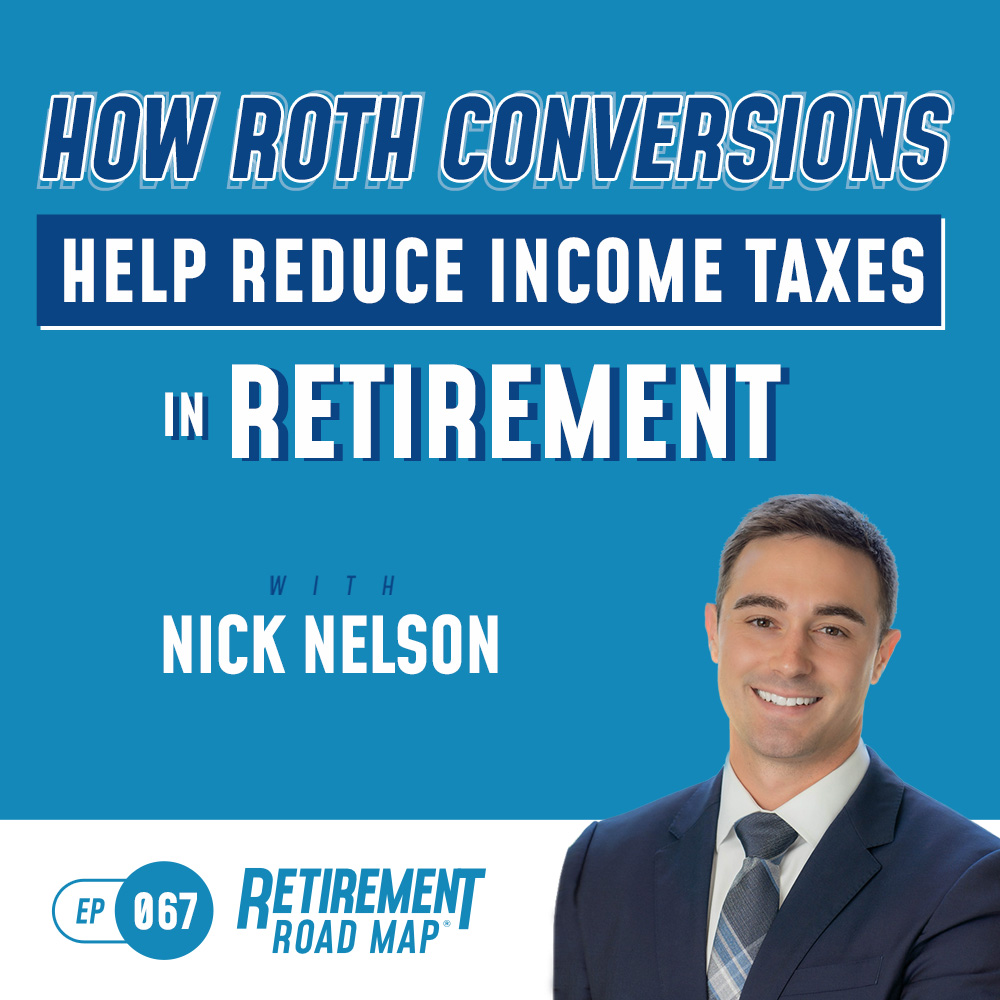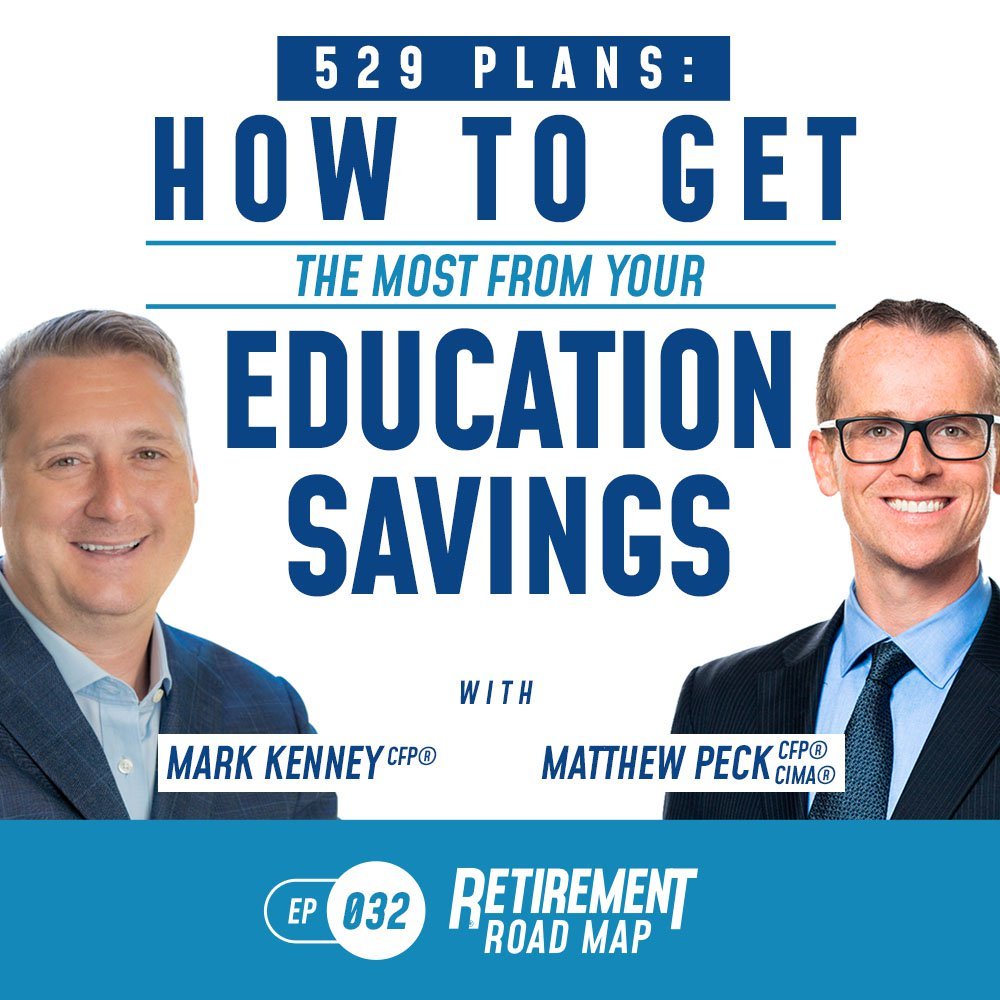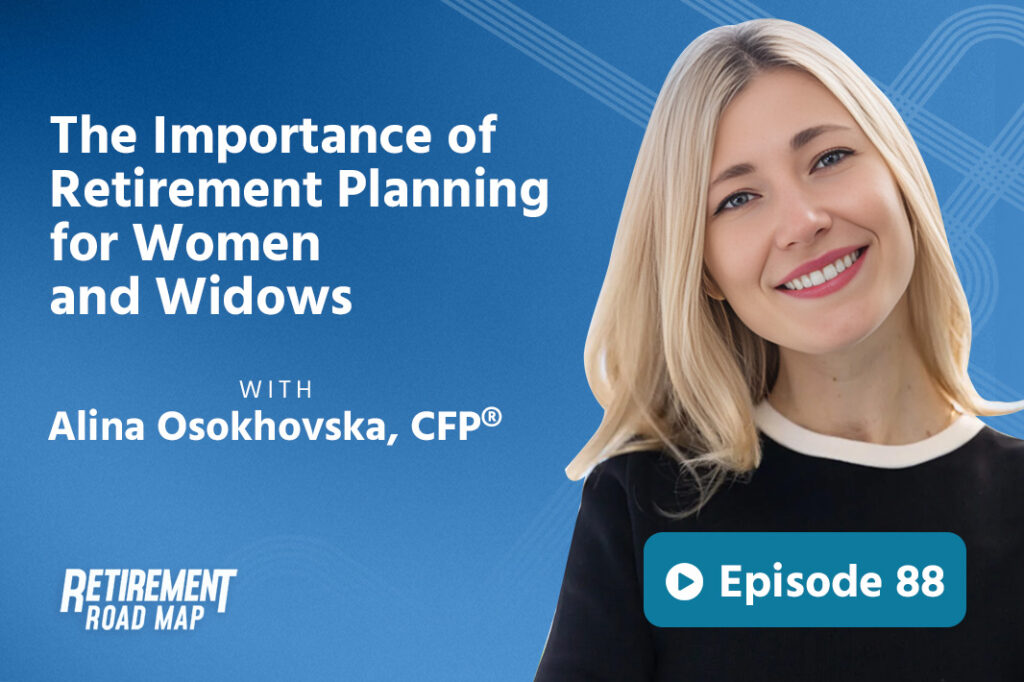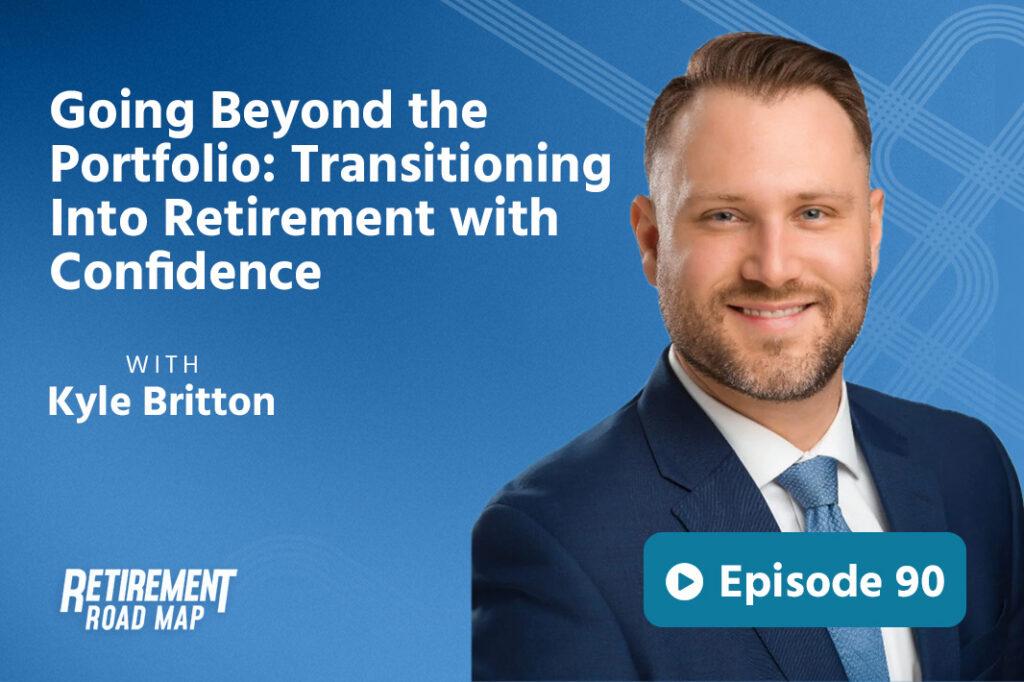For many business owners, insurance is all but guaranteed to be a massive part of their portfolio. Though it may seem simple at first, entrepreneurs rely on insurance products to safeguard their companies from risk, and the wrong coverage can create liabilities, hinder growth, and negatively impact one’s retirement.
Joining me to discuss these topics is Tom Rogers. Tom is the Chief Growth Officer at FBinsure–a full-service independent insurance agency serving personal, commercial, and benefits clients here in the Northeast. He’s a 20-year insurance industry veteran, and he’s uniquely focused on challenging the traditional insurance buying process in favor of a holistic advisory approach.
In today’s conversation, we talk to Tom about how business owners can ensure that they’re protected while executing on powerful growth strategies.
In this podcast discussion, you’ll learn:
- The biggest risks for business owners–and why a small problem can snowball into a seven-figure loss if it goes to litigation.
- New potential liabilities facing business owners that they may not be insured for under a conventional policy.
- The unique challenges of purchasing commercial insurance–and how to find the broker and coverage that’s right for you.
- How business insurance fits into an entrepreneur’s estate plan.
- Why you should always get a second opinion before committing to an insurance plan.
Inspiring Quotes
- “It’s not the $10,000 fire loss that’s going to have an impact on your business and going to have an impact on your financial well-being and the well-being of your family. It’s the unexpected losses. It’s when you think a policy has coverage and it doesn’t.” – Tom Rogers
- “Our greatest risk isn’t generally our firewalls and isn’t our email system. It’s our people. And when we don’t have as many controls over our people, that’s when things happen.” – Tom Rogers
Resources
Read the Transcript
Derek Gregoire: We are joined here today by Tom Rogers. Tom is the Chief Growth Officer at FBinsure, a large, full-service independent insurance agency serving personal, commercial, and benefits clients throughout the Northeast. Tom’s a 20-year insurance industry veteran focused on challenging the traditional insurance buying process in favor of a holistic advisory approach. He owns numerous insurance designations, including the CIC, CRM, LIA as well as the PWCA. We can check out those later and see what those are all about.
Tom Rogers: No need.
Derek Gregoire: Tom has had numerous insurance company advisory councils at the local and national level and Tom’s days are balanced between helping business owners properly safeguard their organization from risk, which is very important, we’re going to get into throughout today’s show, while also executing on the growth strategies that have made FBinsure one of the fastest-growing agencies in the Northeast. With routes that can be traced back over 100 years, FBinsure is a longtime local leader in providing insurance solutions that promise to extend beyond ensuring, ensuring with an E, not just insuring. I love it. I love this stuff. FBinsure has 11 offices in Massachusetts and is currently embarking on a plan for expansion throughout New England. FBinsure is 120 highly professional employees across their commercial, personal, and benefits divisions and is wholly owned by Patriot Growth Insurance Services, a top 30 national broker in one of the fastest-growing agencies in the country.
Derek Gregoire: So, Tom, welcome to the show.
Tom Rogers: Thanks, Derek. Happy to be here.
Derek Gregoire: And I know Tom from way back. We’ve been friends for many, many years, so it’s good to be in here and we’ll try not to laugh too much. Let’s keep the inside jokes to a minimum. But I think, one, when we’re meeting with folks on a day-in-day-out basis, right, and obviously here we have the SHP Retirement Roadmap and it looks at income, investments, taxes, health care, estate planning, all under one roof, under investment. So, a lot of people think investments such as a portfolio, but a lot of business owners, if you’re listening and you’re a business owner, that might be your biggest asset. And so, obviously, insurance, when you hear that, “We’re going to talk about insurance,” it can sound boring but that’s so important when it comes to financial planning is protecting your biggest asset. And so, Tom, maybe just a little bit about what got you into insurance in the beginning. Like where this all start?
Tom Rogers: Oh, boy. Nobody ever plans to get into insurance, Derek. It just happens. And it did that for me. I was working in the high-tech world chasing some dot-com money, and I actually came home for a funeral and my father had worked in the industry. His best friend, who was like a second father to me, worked in the industry and it was one of those times in my life. I was working 90 hours a week. I was going a little crazy and I was watching these guys when I got home. They were all smiles all the time and they were having fun. They enjoyed what they do and I said, “Well, maybe it’s worth giving that a shot.” So, almost 21 years later, here I am, and I’ve enjoyed the ride.
Derek Gregoire: You started at 15. Now, you’re 35.
Tom Rogers: Unfortunately, no. Those are not the numbers.
Derek Gregoire: That’s a complete lie. And, yeah, again, I think when it comes to insurance, even here, like at SHP we’re going through all of our stuff like it’s a lot. But if you overlook something, it can be catastrophic. The last thing you want is something to be missed when it comes to your biggest asset, which for most people listening that own a business, it’s their business. And so, instead of going down the personal lines, obviously, everyone has homeowner’s insurance, the basic stuff. But from a commercial standpoint, for business owners listening, what do you think the biggest risks are today to the business owner?
Tom Rogers: Oh gosh. I mean, we could do a two-day-long podcast on the risks to businesses today. You know, there are certainly many of them out there, and I think you hit on the point of, for many business owners, we do all this planning. We work with you and your incredible team. We work with estate planning attorneys. We do all the things right in order to prepare ourselves for the remainder of our lives. But for most of us that are business owners, our biggest asset tends to be that business and it can be overlooked. And I think that in itself is one of the biggest risks that are out there. We often…
Derek Gregoire: It’s overlooked in general.
Tom Rogers: Yeah. Just not even thinking about that as part of your portfolio and putting the time and effort in necessary to protect it properly.
Derek Gregoire: So, if you’re looking at a business, Tom, like a local business, what are some traditional like basically traditional insurance policies that people have or people should be aware of?
Tom Rogers: You mean your typical policies are going to be your property, your liability, your worker’s comp, your auto. Most companies are going to have those in place. They may have an umbrella in place that’s going to go over a portion of those policies, but there’s a variety of other policies. You know, in some of them, either they’re highlighted by the environment that we’re in today. An example would be cyber liability.
Derek Gregoire: Yes, I learned. Yeah. Exactly.
Tom Rogers: A product that has evolved pretty substantially over the course of my career. That product was very different when I first got into this business. It was actually very new to the marketplace.
Derek Gregoire: Well, 20 years ago was cybersecurity even a thing? Brand new, right?
Tom Rogers: It was a thing and the policy itself was actually often called cybersecurity and not even cyber liability, and there was a couple of different types of cyber policies you can buy. What you’ve seen over a period of time is an evolution of the product where it’s somewhat similar across the different carriers that are out there. But here’s one of the biggest complexities of insurance and really one of the biggest risks for business owners as well is the policy is very different. Even though it’s evolved in, say, 80% of the language in policies may be similar across carriers, and when I say carriers it’s insurance companies, the other 20% is where you get tripped up. And this is where insurance brokers’ role is very similar to your role, and it’s to keep wealthy people wealthy. We have that conversation with our clients all the time. It’s not the $10,000 fire loss that’s going to have an impact on your business and going to have an impact on your financial well-being and the well-being of your family. It’s the unexpected losses. It’s when you think a policy has coverage and it doesn’t. And those tend to be big. Those are the million, 2 million, 5 million, even beyond that, losses.
Derek Gregoire: Well, that’s the thing like even here at SHP in our almost 19 years of existence, we’ve survived the flood. We survived a fire. And the last thing I think about when I wake up in the morning is my insurance policies. But when that moment happens, it’s like you better hope that you have what you thought you have because I remember the cost and luckily we had a great policy. Everyone was taken care of but you know real quick like how important it is when you face a crisis. And that’s a simple one that I’m talking about because those do happen and most policies cover that. But if you have an incident where it’s not covered and you think you are, you could be out millions.
Tom Rogers: And that happens quite a bit, unfortunately, and we see it all too often. Cyber is a perfect example. Cyber is one of those policies some people think, well, it’s kind of nice to have. Well, today you have to have it as a business owner and it’s harder to get today than it ever has been. You think about what’s happened over the course of the last 18 months in this world. We’ve all gone home. We’ve got more security risk, data flying across the internet than there ever has been. Our greatest risk isn’t generally our firewalls and isn’t our email system. It’s our people. And when we don’t have as many controls over our people, that’s when things happen.
Derek Gregoire: Well, and even here, I think you look at all the possibilities of what can happen. And even now, which was not a thing many years ago, when I started in the business, it was like you call someone. It wasn’t even really emails back and forth. I don’t think when I started in the business, I had an email or if I did, my clients didn’t have it. They just called me. Now, we have full policies and procedures. If someone’s identity has nothing to do with us, but people have identity stolen. There’s like a 15-step process we have to go through that wasn’t even thought of 15, 20 years ago. So, here we are. So, we’re talking about all these risks. So, what are the major risks that you guys see that aren’t covered? If someone’s listening and you go, “Yeah. I think I have a policy,” but what’s something that might not be covered in a traditional policy?
Tom Rogers: So, yeah, I talked about those traditional policies earlier. Another perfect example beyond cyber that is a bigger deal today than it ever has been in this war for talent and people jumping ship from one business to another and the period of layoffs that we had at the outset of the pandemic, it’s employment practices liability insurance. And that is jokingly in the industry, we kind of call it the Harvey Weinstein policy. It’s the hiring, the firing, the discrimination. It’s the harassment.
Derek Gregoire: Well, that has to be more prevalent than ever, right, because now everything’s so sensitive.
Tom Rogers: Absolutely.
Derek Gregoire: And everyone’s ready to like – it’s a very litigious society we live in.
Tom Rogers: You said it and it’s unfortunate that we’re living in it. And the insurance industry gets villainized as a result of it but we’re really responding to what’s happening in the world that we live in. So, employment practices liability, a lot of business owners will if they’re in a period of time where they’re in a cash crunch, that’s one of the first policies they’ll ask, “Do I need that?” Unfortunately, we’ve seen it too many times where somebody has eliminated that from their portfolio of insurance.
Derek Gregoire: So, what would happen? Like, let’s say they eliminate it and then all of a sudden there’s a claim?
Tom Rogers: There’s a claim. And now you were left to litigate that claim on your own. And 9 times out of 10 those claims don’t go very far but I can tell you just the cost of litigation can be substantial. It can be well into the six figures just to litigate that claim. And the one time out of ten, where it really does become a problem, those are huge, huge awards. And now you’re out of pocket, potentially seven and well into the seven figures on something like that.
Derek Gregoire: Yes, that’s someone you’re going to want to make sure you have. Again, you’re trying to keep someone that’s worked their butt off to build a business, we’re trying to protect that for good people that have done that work. Any other traditional like policies that are usually missing certain things that you see? Let’s say you’re sitting down with a business for the first time because I know when we’re sitting down with a client 99, I don’t want to say 99 times out of 100, that’s a little aggressive. But when someone comes in for the first time, if you talk to anyone on the team here, it’s like I know they have a portfolio. They have a portfolio. There’s some sort of stocks, bonds, mutual funds but that’s their entire plan. And I already know I’m going to find like, “Hey, what’s your tax strategy, not filing your taxes, but what have you done to prepare to reduce tax going forward?” And then their heads turn like, “What? We don’t do that.” And so, I already know a lot of people are missing things from estate planning, tax planning, even from a financial planning perspective. So, you must have the same things on your end when you sit down like you want everyone to have all the appropriate coverage and have a well-rounded, holistic plan but like the one you just mentioned, that’s one that’s probably missing quite a bit. Any other ones that you see?
Tom Rogers: Yeah. I mean, again, there are so many different areas we could focus in on but you’re keying in on some of the things that we see probably more often than not. Another one would be crime and it’s internal crime. It’s your employees stealing from you. And we’re all good-natured human nature, right? You know, we think nobody’s going to do that to us. I’ve known my employees forever and it’s the employees that you know, have known forever or the family members. Unfortunately, we have seen these stories unfold more times than not. When we come in to meet with somebody and we talk about the potential portfolio insurance and what they should be buying, that’s one of those areas where people are saying, “I don’t really need that or I only need a limited amount there because I know that’s not going to happen to me.” You know, they think along the lines of somebody maybe back in the warehouse grabbing something and going home and how much can you really get away with?
The reality is and you see it on the news from time to time the story about, and I hate to characterize it this way, but oftentimes it’s the little old lady that’s been there for 40 years and come to find out she’s been stealing for the last 12. It’s millions of dollars that she’s gotten away with, or it’s a family member that we don’t have the proper controls in place, and they’re cutting checks to an entity that you’re not aware of and that entity happens to be them. And so, we’ve seen that all too often. And the funny thing is when we’re coming in and we’re selling those products, usually it’s that person that’s in the room and they’re helping to make the decision not to buy that coverage and we’ve seen it time and time again.
Derek Gregoire: Yeah. And it’s probably from your side, you don’t want to feel like, “Hey, we’re trying to add this premium to make it more expensive,” because then they’re like, “Are you trying to do this for me or for you?” And obviously, me knowing you for many, many years in the business you have, it’s not about that but you want to do what’s right for the client. And obviously, no one wants to over-insure themselves, but there are things you can’t overlook. And for the price of adding a rider to cover one of those things for the protection that you get, it’s still worth making sure you have a robust plan. And almost as I’m sure a lot of us is just giving a second opinion like, “Hey, get a second opinion. Talk to Tom or his team at FBinsure,” because those are things that at a worst-case, you have everything covered, right? And you wasted the time it took but sometimes you’re uncovering things I’m sure like I do.
Tom Rogers: Yeah. Unfortunately, very rarely is everything covered, and it goes to the complexity of our industry and the complexity of the industries that we’re working with because, frankly, SHP needs something different than the manufacturer, that I talked earlier, needs versus the contractor or whatever other industry you’re in.
Derek Gregoire: It’s like us and the clients we’re dealing with. Some people don’t have a business and this isn’t even a topic, right? And so, the purchasing process, I’ve heard some people say, “Oh, it’s hard to buy commercial insurance.” Is that true?
Tom Rogers: The purchasing process, probably, it may be the biggest pitfall that we see out there. And the unfortunate thing is our industry has trained people over a long period of time how to buy insurance. When we walk into a new potential relationship, oftentimes there’s a stack of policy sitting on that table ready for us to take and copy and go and come back with lots of quotes, and that’s what people are expecting. And again, it’s our industry that’s trained them to think along those lines and unfortunately, people will bring in multiple brokers and ask them all to go do that. What happens in that scenario is everybody brings something back, and we talked about the complexity of the policies themselves earlier and how language is different from one to the next to the next, where you’re left to be the expert to determine which of those policies actually is the best for your organization. Nine times out of 10, you’re making that decision based upon the number in the bottom right hand of the first page and not necessarily thinking along the lines of all of these other complexities. And guess what, all three brokers that have come in to give you their quotes, they all say theirs is the best because it is.
So, our recommendation is one in which you actually interview brokers and it’s almost like you’re interviewing your own internal vice president of risk management and insurance. You need to think along those lines. Would you hire somebody that you don’t trust? Because you don’t want to end up with the third-best broker who might just happen to have the best price. The reality is that most sophisticated brokers have access to the majority of the marketplace. We’re going to bring a variety of different quotes to you, a variety of different options to you, and if there’s one person that’s controlling that process and there’s transparency in that process and there’s trust in that process, you are going to get the competition you were hoping for created in the insurance carrier marketplace.
Derek Gregoire: By the person who you trust.
Tom Rogers: By the person who you trust, and that person is going to be able to lay out the differences between carriers. And some of those are quantitative and some of them are qualitative, different claims, levels of claim service, different levels of loss control, different levels of resources that you can take advantage of as a business to reduce your total cost of risk in your organization.
Derek Gregoire: Yeah. No, and like I said, even when we talk to our clients, because when we’re building a full plan, right, the entire picture, it’s like we’re talking about like from A to Z, investments, taxes, health care, legacy within the plan and tax planning. But within those plans, we’re looking at the insurance policies. If it’s an individual, it’s usually life insurance, long-term care. Do they need them? Why do they need them? If it’s a business, then it opens up this whole can of worms. And so, getting off-topic a little bit, you being a business owner for almost over 20 years, me being a business owner for 20 years is and I probably should prep you as before, it’s kind of a thoughtful question because I think a lot of business owners will be the one that are listening to this podcast or this radio show because it’s about business owners and insurance. But anything in the business world, if you could tell your 25-year-old self what you know now, are there any major lessons? And I can go first if it gives you time to think about it because I think for me, it was more like just from a business standpoint in general, which is off-topic, but like there is so much I wish I knew about like building processes back then.
When we started, it was like I wanted to build financial plans. I want to help people but the business side, no one really teaches you. Even if you go to school for business and I was in finance like no one tells you how to run a business, look at a P&L and make decisions on like how what you do replicable and can you scale it and can you provide value? So, that’s for us is I guess we have our COO, Michelle Short. She helped us a ton. She still does, but I wish we hired her like five years earlier. You know what I mean? And built all those processes and procedures early on. So, I don’t know. Is there anything else that you tell your 25-year-old self in the business sense of, like, hey, some of the things you’ve learned along the way?
Tom Rogers: I think a lesson that knowing you as I know you and myself at 25 and who we are today versus who we were at 25, patience would probably be the one virtue, I would say. As a business owner, you kind of learn along the way. It’s funny. I was thinking about this last night in just the concept of brand and the importance of brand. And it resulted from a conversation I had with a client of mine who’s actually working with you and we were talking as we were driving yesterday, and he was talking about how happy he was with SHP.
Derek Gregoire: He said the same thing about you guys, by the way.
Tom Rogers: That’s flattering. In your brand, we often say you talked about beyond insuring, ensuring. Well, that’s a tagline. Until our clients start to say we are ensuring something for them, whether it’s their business, their family, it’s not a brand until that happens. And that struck me with SHP. Your brand is what people say about you and people say wonderful things about you as an organization. And I liken that to the fact that you, guys, you think about Michelle and the procedures that she’s put in place and the structure that you have as an organization, it’s incredible what you’ve done. So, for me, building that brand value for us is probably another big lesson that I’ve had over time that at 25, you thought you put a few things down on paper. This is what it’s going to do and this is how everybody’s going to and we’re off to the races, right? Well, the reality is that doesn’t happen. It’s not without rolling up your sleeves, doing a lot of hard work.
Derek Gregoire: And having a good team built around you.
Tom Rogers: A great team built. Unless you are the dumbest person in the room, you’ve done it wrong. If you think you’re the smartest person in the room, you have surrounded yourself with the wrong people.
Derek Gregoire: I must be really successful then because I’m always the dumbest one in the room here. No, in all seriousness, like I think one of the things I’ve talked about on this show in the past and I continue to talk about with my team, my family, faith, everything you look at it and I’ve said this before, but it strikes a chord because you’ve been talking about all these little details, right? Like looking at all the little details within an insurance policy for a business, right? Do we have this? Do we have that? And I feel like the more you can take care of all the little things in life, in business, and insurance policy and for us, it’s like making sure there’s no stone left unturned, the bigger things work themselves out. So, if you can pay attention to the small details, the bigger things work themselves out naturally as a result of paying attention and not trying to skip steps, whether it’s business. And I think that’s what you guys do an amazing job at FBinsure and just making like, even like I said, the comprehensiveness of looking over what someone has, what someone might be missing. Most people don’t do that. They just look and, “Hey, I want…” and that’s the difference between a good firm and someone that’s just throwing a quote together trying to make a sale and move on to the next one.
Tom Rogers: Without a doubt.
Derek Gregoire: So, any other final thoughts? I think we’ve covered a lot. I think we’ve hopefully opened up folks’ eyes if you’re listening. I know Tom would say whether it’s with him or someone else, FBinsure is an amazing company. I’d recommend getting a hold of them but, again, if you have certain policies, if you have a business and you’re like, “You know what? I got to make sure I’m covered for all this, and I don’t know if I am,” get that second opinion. At least take a look at it and worst case, you’re left in the same position and hopefully, it’s in a good position.
Tom Rogers: Sure, absolutely. You know, I think you mentioned earlier looking at people’s individual insurance portfolios, and I think a lot of the same concepts apply. Whether it’s you’re looking at your home and your auto and your personal umbrella or you’re thinking about part of your estate planning process with disability and life insurance, it’s reviewing these things on a regular basis, and that doesn’t necessarily mean quoting things up on a regular basis. Underwriters are people, too. If they see you every year, you’re eventually going to get shuffled at the bottom of that pile. But reviewing to make sure things are done and making sure those little things are taken care of because if the little things are not taken care of, there’s a really good chance that the big things aren’t being taken care of.
Derek Gregoire: Correct. Exactly. So, thank you so much, Tom Rogers from FBinsure, for joining us. It was awesome information. I think a lot of people listening will get some good value out of it. And again, we’re going to have you. I’m sure we can probably go on for 10 hours. People might be falling asleep at that point but thank you so much for joining us.
Tom Rogers: Thanks, Derek. Appreciate being here.
[END]
[/fusion_toggle][/fusion_accordion][fusion_text columns=”” column_min_width=”” column_spacing=”” rule_style=”default” rule_size=”” rule_color=”” content_alignment_medium=”” content_alignment_small=”” content_alignment=”” hide_on_mobile=”small-visibility,medium-visibility,large-visibility” sticky_display=”normal,sticky” class=”” id=”” margin_top=”” margin_right=”” margin_bottom=”” margin_left=”” font_size=”12px” fusion_font_family_text_font=”” fusion_font_variant_text_font=”” line_height=”14px” letter_spacing=”” text_color=”” animation_type=”” animation_direction=”left” animation_speed=”0.3″ animation_offset=””]No statements made during the Retirement Road Map® podcast shall constitute tax, legal, or accounting advice. You should consult your own legal or tax professional on any such matters. Information presented is for educational purposes only and does not intend to make an offer or solicitation for the sale or purchase of any specific securities, investments, or investment strategies. Investments involve risk, and unless otherwise stated are not guaranteed. Our Investment Advisory Services are offered through SHP Wealth Management LLC., an SEC registered investment advisor. Insurance sales are offered through SHP Financial, LLC. Our advisors and insurance reps may offer clients advice and/or products from each entity. No client is under any obligation to purchase any insurance product.[/fusion_text][/fusion_builder_column][/fusion_builder_row][/fusion_builder_container]
Certain guides and content for publication were either co-authored or fully provided by third party marketing firms. SHP Financial utilizes third party marketing and public relation firms to assist in securing media appearances, for securing interviews, to provide suggested content for radio, for article placements, and other supporting services.
The content presented is for informational purposes only and is not intended to offer financial, tax, or legal advice, and should not be considered a solicitation for the purchase or sale of any security. Some of the informational content presented was prepared and provided by tMedia, LLC, while other content presented may be from outside sources that are believed to provide accurate information. Regardless of source, no representations or warranties as to the completeness or accuracy of any information presented are implied. tMedia, LLC is not affiliated with the Advisor, Advisor’s RIA, Broker-Dealer, or any state or SEC-registered investment advisory firm. Before making any decisions, you should consult a tax or legal professional to discuss your personal situation. Investment Advisory Services are offered through SHP Wealth Management LLC., an SEC-registered investment advisor. Insurance sales are offered through SHP Financial, LLC. These are separate entities. Some supervised persons of SHP Wealth Management, LLC, are independent licensed insurance agents of SHP Financial, LLC. No statements made shall constitute tax, legal, or accounting advice. You should consult your own legal or tax professional before investing. Both SHP Wealth Management, LLC. and SHP Financial, LLC. will offer clients advice and/or products from each entity. No client is under any obligation to purchase any insurance product.

